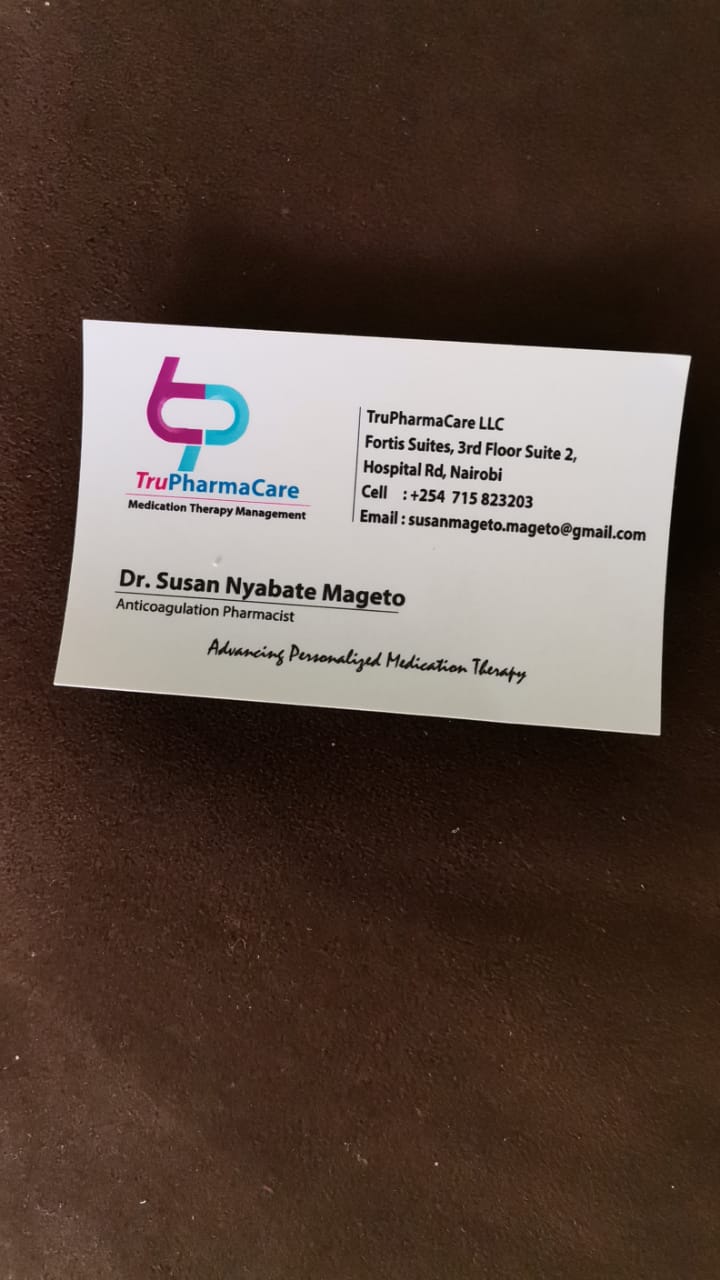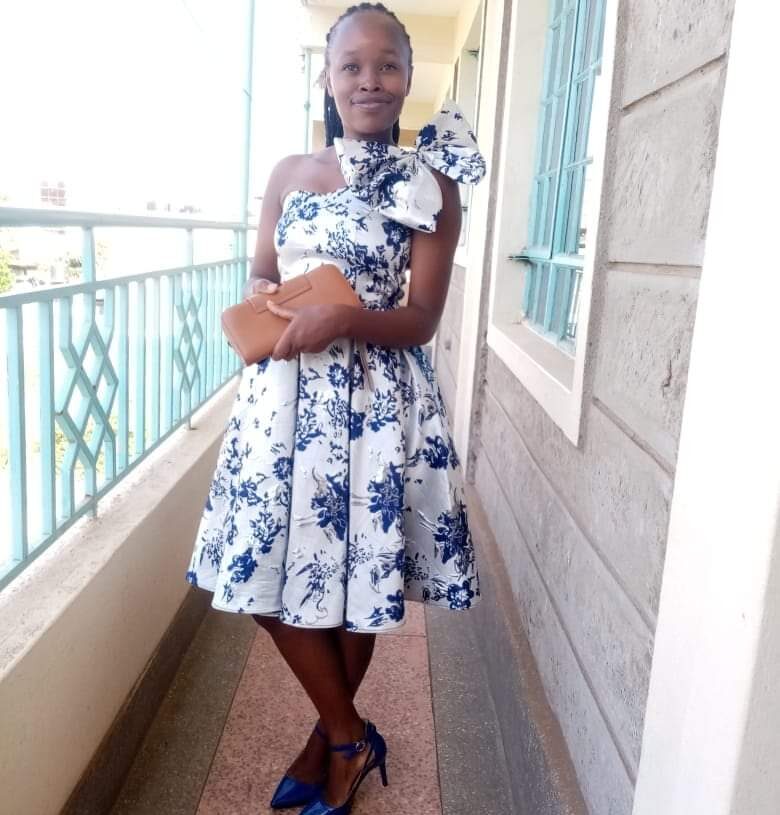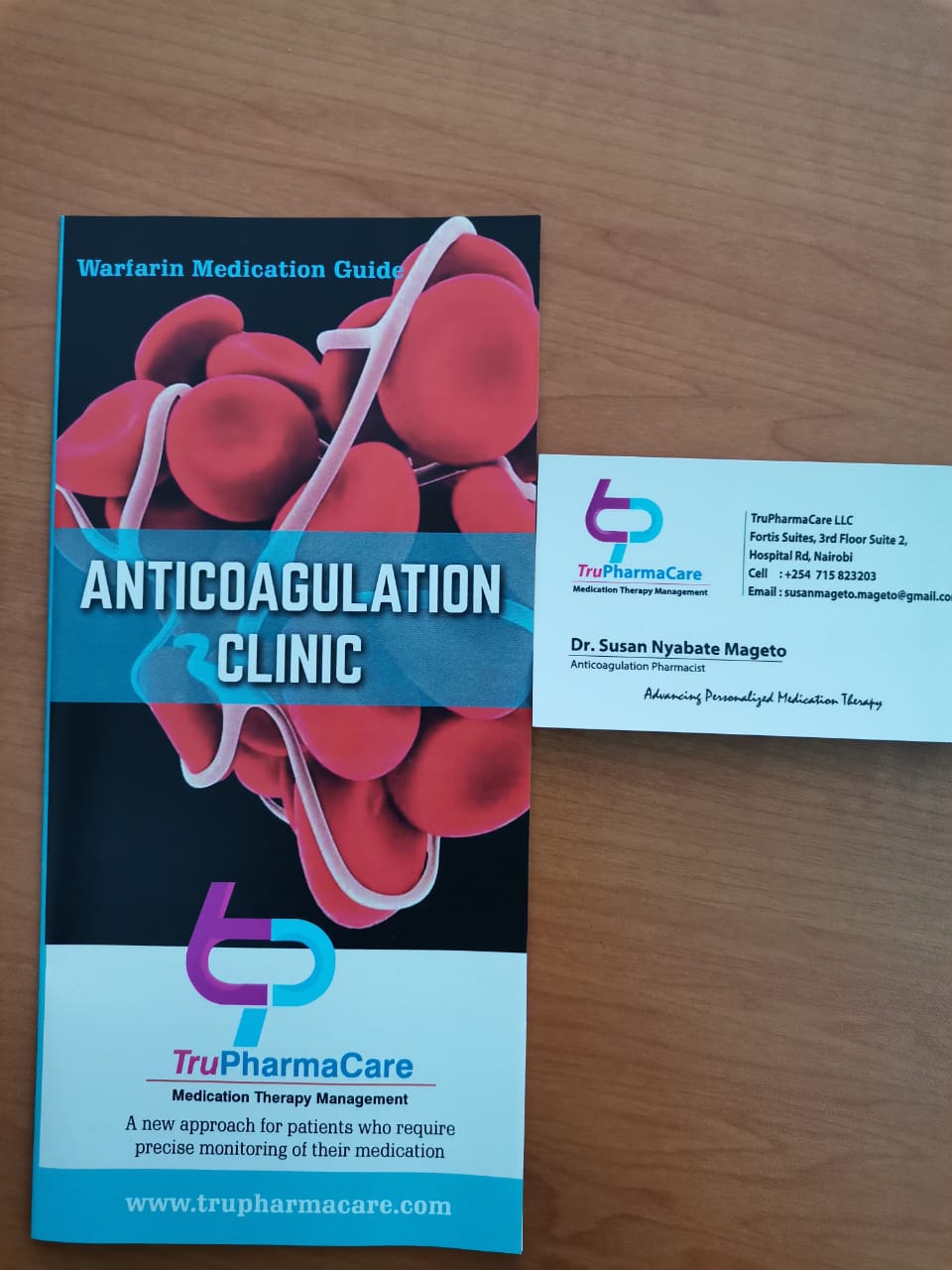
- Name: Dr. Susan Nyabate Mageto
- Nationality: Kenyan
- Age: 30
- Would you walk us through your academic journey. – I started my academic journey in a primary school in Riruta. Afterwards, I transferred to Murema Primary school in Kasarani where I did my KCPE and scored 421/500 marks. I then went to Nakuru Girls
high school where I scored an A-. I joined Kenyatta University for a degree in pharmacy in 2011. I am currently finishing up my M.Pharm (Clinical Pharmacy) at The University of Nairobi. - Which Places have you worked so far? – I did my internship at Moi Teaching and Referral Hospital, Lab and Allied LTD, and KAM pharmacy. I then worked at KAM pharmacy
for a while before moving to TruPharmaCare where I helped set up the anticoagulation clinic. I also lecture at a local university. - Do you love being a pharmacist? -Sometimes I absolutely do, sometimes I lowkey don’t! It’s a great career IF you get to do what you love and get paid well to do it.
- Where is TruPharmaCare Anticoagulation Clinic located? – 3rd floor of Fortis Suites along Hospital road in
Upper Hill. - Why an Anticoagulation Clinic? – I enjoyed working at the anticoagulation clinic at MTRH. It pricked my interest and I decided to pursue it. It is an area where the role of the pharmacist is well established and respected. Worldwide, pharmacist
led anticoagulation clinics lead to better therapy outcomes when compared to anticoagulation clinics led by other health workers - Which type of patients/conditions do you deal with? – I deal with any patient who is on an anticoagulant for prophylaxis or treatment of thromboembolic
disorders. - What medical services do you offer to your patients? – We counsel patients on thromboembolic disorders and anticoagulants. We also give information about anticoagulants and diet. We do INR testing and warfarin dose adjustments. We also monitor response to newer anticoagulants such as the Direct Acting anticoagulants (DOACs). Our patients get 24/7 access to the anticoagulation pharmacist and they can be able to get information on drug-drug interactions, food-drug interactions and disease-drug interactions. This ensures that our patients are not only adequately anticoagulated but their safety is also assured. Patients are also given anticoagulant medication alert
bracelets and pill boxes especially for the old patients. - How much do you charge for the various services? – For Ksh. 2000, you will have your INR done, dose of medication adjusted and warfarin dose that will last you till the next visit. For DOACs, we make sure you access them at lower prices than those in the
market. - What would you say is the importance/advantage of one visiting an Anticoagulation Clinic instead of a General Hospital? – In the anticoagulation clinic you have staff that are dedicated to this one condition and therefore you get
specialized services. There is improved adherence to these medications as patients get thoroughly schooled on their conditions and the medications that they take. Safety is also increased as patients have unlimited access to the anticoagulation clinic. My patients call me before they buy over the counter medicines or take traditional medicine so that they can be assured that there is no effect of these substances to their condition or the anticoagulants. Patients don’t have this much access to the health workers in general hospitals. There is also the issue of time, the average time a patient seeking anticoagulation services at a general hospital takes from test to counseling, dose adjustments and
dispensing of the medication is averagely 3 hours in a private hospital and 5-8 hours in a public hospital. This is not the case in the anticoagulation clinic where all these services happen in 1 hour. - How do you collaborate with Medical Doctors, Clinical Officers, Consultants etc especially in terms of referrals? – We advertise our services to consultants, MOs and COs. Cardiologists especially value the role of pharmacists in anticoagulation management. They refer Afib patients and patients who have had valve
replacements for anticoagulation monitoring. We have a system whereby we always update them on the progress of their patients who we are following up on. However, more effort should be put in educating healthcare workers about anticoagulation services by pharmacists and its benefits. - What is the reception/attitude of the general public towards Anticoagulation Clinics? – The general public is largely ignorant of anticoagulation services provided by pharmacists. A lot of
sensitization is needed to make it popular. We need to get to a place where a patient with thromboembolic disorders and on anticoagulants knows that they need their anticoagulants to be managed and monitored by a medications specialist who is the pharmacist. - Challenges experienced when starting up your Anticoagulation Clinic? – Getting referrals was and still is the biggest challenge. Also advertising the service has not been a walk in the park.
- How did you finance the start up. – I started with only an idea. I approached Prof. Francis Ndemo who was already running an MTM clinic at fortis and he agreed to partner with me and offered one of his offices to me. We also borrowed a point of care machine from MTRH and the clinic was up and running. Dr. John Kanyi from MTRH also provided
us with material needed(documents) to run the clinic. - Where do you see yourself in the next 10 years? – In ten years, I will probably be a senior lecturer somewhere while still running an anticoagulation clinic. I
also have interest in technology and research so I might be doing something in those areas too. I may also be working as a clinical pharmacist in a hospital near you. I believe pharmacy is largely
underexplored in our set up. There is still room for wandering and disrupting status quo. - What has been your biggest struggle in the Pharmacy field? – Unemployment and underemployment
- If you are to change one thing about the profession, what would it be? – Separating the renumeration of the pharmacist from the product and tying it to the service provided. If this can be achieved in our country, then the issues of unemployment and underemployment of
pharmacists will be a thing of the past. - Do you have anything you do apart from pharmacy either for income generation or leisure. – I am a foodie. I cook for fun. I try out new recipes for my family every weekend. I may monetize it soon
(wink). Who knows? - Advice to other pharmacists. – To the young pharmacist: the profession has changed, chart your own path and seek mentors who are willing to hold your hand. Also start small and grow slowly. Do not waste your time waiting for that big break while at home! – To the older pharmacists: there is a great need for mentorship among the younger pharmacists, please be willing to walk through this journey with us. We can only see far by standing on the shoulders of giants (Older Pharmacists)


This is great Susan. I am an upcoming Pharmacist and I would like to link up with your for mentorship programs and guidance. Thank you
Hi Clement. Sending you a message.